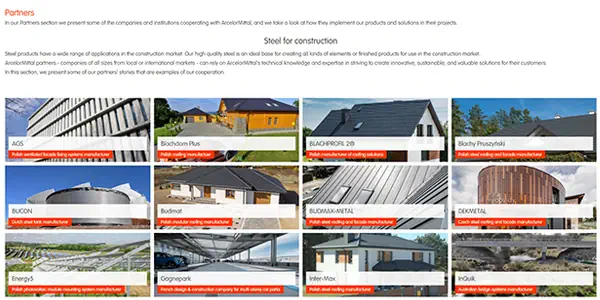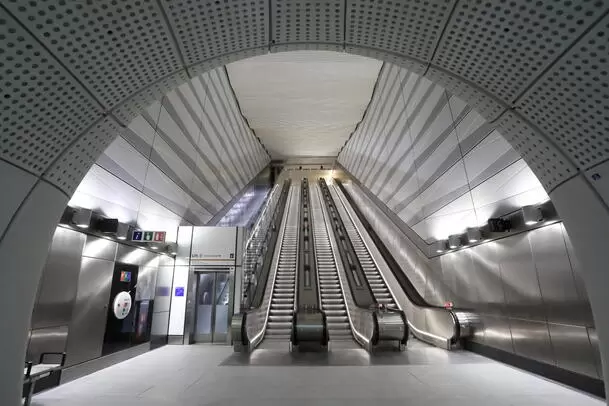New tunnels and underground stations
Eight giant tunnel boring machines (TBMs) carved out the 21 km of twin-bore tunnels below the busy streets of London, operating in 24-hour shifts seven days a week. Each was 150 m in length and weighed around 1000 tonnes. The TBMs were not just tunnelling. They were removing the muck and creating a sealed concrete tunnel as they went. They have an external diameter of 7.1 m which allowed for an inside tunnel diameter of 6.2 m once the concrete tunnel segments were put in place.
The concrete sprayed by the TBMs to seal the tunnel walls is reinforced with steel fibres - as are the pre-cast concrete segments that form the inner shell of the walls.
Elizabeth line: London's new rail tunnels reinforced with ArcelorMittal steel fibres
London's new railway, the Elizabeth line, constructed as part of the Crossrail project, was officially opened in May 2022. One of Europe’s biggest rail infrastructure projects of recent decades, work began on the creation of this new, 118-km-long rail link crossing London from east to west in May 2009. 42 km of new rail tunnels and ten new stations were built for the Elizabeth line. ArcelorMittal steel fibres were used to reinforce the concrete of the tunnel walls.
Steel fibres by ArcelorMittal: innovating for Crossrail
ArcelorMittal was chosen as the main supplier of steel fibres for this project, with more than 11 000 tonnes of steel fibres being produced at ArcelorMittal WireSolutions’ plants in Sheffield, UK and Bissen, Luxembourg.
In the Elizabeth line’s eastern tunnels, from Limmo Peninsula to Farringdon and from Pudding Mill Lane to Stepney Green, around 4000 tonnes of ArcelorMittal HE++ 90/60 steel fibres were used to reinforce the segments and more than 1000 tonnes of HE+ 55/35 fibres were used in the sprayed concrete.
For the new Thames tunnel from Plumstead to North Woolwich, 1000 tonnes of HE++90/60 was supplied for the segments.
Apart from the tunnels, ArcelorMittal steel fibres were also used in the construction of the new stations at Liverpool Street and Whitechapel.
The ArcelorMittal WireSolutions sales, technical support, R&D, and production teams worked together to supply the steel, but also assisted the material engineers and production managers of the joint ventures involved in the projects.
WireSolutions developed two new grades of high-performance steel fibres with exceptional tensile strength specifically for the requirements of Crossrail: HE++ 90/60 for the tunnel wall lining segments and HE+ 55/35 for the sprayed concrete.
Steel fibres used in concrete not only provide reinforcement, but also reduce and control concrete shrinkage. Furthermore, they prevent micro-cracks in the concrete from converting into major cracks.
Text:
Constructalia
Images:
© Crossrail Ltd
© TfL































